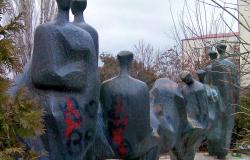Is Kosovo a Country, or a Cause – and for What?

Earlier this year, Kosovo marked the tenth anniversary of its – self-declared, not UN-recognized – independence. It is thus Europe’s youngest country, which is also true in terms of demographics: The average age is 29 years; around 35 per cent of its 1,8 million citizens have been born after NATO’s intervention of 1999. They have lived through mostly peaceful but challenging times.
Kosovo is also one great experiment in nation-building, or rather institution-building as it is called in ‘status-neutral’ terms. Its international legal position is still governed by the UN Security Council resolution ending the war with what was then Yugoslavia (today’s Serbia). Pending a final settlement, the international community is busy supporting the establishment of state institutions without calling them such.
Moreover, the country is part of the unfinished business of the breakup of Yugoslavia and its geopolitical implications rippling far beyond the region itself. From Catalonia to Scotland and from Crimea to Taiwan, the dialogue between Belgrade and Pristina about some sort of mutual recognition is being watched due to its significance for possible or actual unilateral secessions around the globe.
If you ask the young people of Kosovo about what they aspire to, it is mostly three things that come up: First, the universal aspiration for a job and a family, though youth unemployment is at 58 per cent, and those who earn their living do so on an average wage of around 470 Euros per month. Then there’s the more specific desire to be able to travel, as Kosovars are among the few Europeans in need of a visa to enter the EU. Yet visa liberalization depends on crucial rule of law reforms, from how ID cards are issued to border controls and migration management to the fight against organized crime, which are hard to implement in a state rife with lawlessness and corruption.
The third point on the wish list is to be recognized as a ‘normal country’ – which means becoming a UN member – that can also, one day, enter the European Union. This particular road is paved with stringent and increasingly numerous conditions, which states with less ‘baggage‘ and more administrative capacity have been struggling with, or indeed were lucky enough in the past to be have been declared, to fulfil. Crucially for young Kosovars, with normalcy comes the expectation that their country may, eventually, form a union with neighboring Albania. This is of relevance given that the current constitution forbids such unification, a requirement of the Western states that supported Kosovo’s independence following nine years as an international protectorate.
While creating a unified Albania may appear logical based on a shared language and identity, plus the fact that tiny landlocked Kosovo is barely self-reliant. Yet it is also odd given that the two countries’ combined 4,6 million inhabitants have not lived under the same jurisdiction since the Balkan Wars of 1912/13, when Kosovo turned from a villayet of the Ottoman Empire to a province of Serbia. As such, it would become a sub-part of Yugoslavia, both the Kingdom and the Socialist Federal Republic.
More importantly, the creation of Greater Albania, as some would call it, would fly in the face of the international community’s efforts of now nearly two decades to form Kosovo as a viable, multi-ethnic state. If NATO’s bombing campaign of the spring of 1999 was meant to end the suffering of Kosovars from the hands of their Serbian rulers trying to create an ethnically homogenous state after the breakup of multi-ethnic Yugoslavia, the West would not want to let Kosovars do the same by expelling the remaining Serbian citizens in response. Hence the ongoing dispute over the Northern part of Kosovo as well as a other majority Serb-populated municipalities across the country.
In fact, crossing the bridge of Mitrovica over the Ibar river – which separates rather than unites the city – from South to North practically means leaving Kosovo and entering Serbia. Cars have either Serbian license plates or none at all; the currency is Dinar, not Euro; and the streets are adorned by Serbian and Russian flags, with President Putin greeting from the walls and shop windows. People here mostly live off public sector jobs, enjoy free health care and receive their pensions, all paid for by the government in Belgrade. While Pristina was asked to put up bilingual street signs throughout the territory as a display of recognizing Kosovo’s second largest community (the term ‘minority’ implying independence), it has no jurisdiction over that particular part where most of these people live.
It does not help that the international community is there to support the country’s transition process but without a defined goal. A UN mission and one from the OSCE both operate under the presumption of status-neutrality, which the majority of the country’s citizens refuse. The EU’s rule of law mission, in contrast, is hampered by the fact that five EU member states do not recognize Kosovo’s independence, as much as by the central authority’s inability to advance towards even becoming a candidate for membership. In the absence of tangible progress, all sides seem to have settled for an extension of the status quo: the government pretends to reform while the international administrators pretend to care. As long as financial support keeps coming in and reforms do not really encroach on the interests of the criminal networks running local politics, the truce holds.
So Kosovo is indeed a country, though without being universally recognized as such. Which is what makes it also a cause: for its Albanian population to long for international recognition as well as for a realization of its Pan-Albanian aspirations. At the same time, it is also a country with disputed territory about to turn into a frozen conflict, like so many others within the sphere that Russia calls its near abroad. For that reason, the EU but also the United States do not feel like throwing their hands into the air in (justified) despair, then packing things and leave.
The country has thus also become a cause for the headaches of an international community increasingly at pains to devise a strategy for proper statehood and eventual UN membership. The criteria it has set are close to unattainable, while its red lines on redrawing borders run counter to what people on the ground might eventually agree on as a compromise. An adapted version of the Pottery Barn Rule of outside intervention would would stipulate that, while international organizations and the governments behind them certainly did not ‘break’ Kosovo, they still ‘own’ part of its current malaise.
Image credit: Tony Bowden via Flickr (CC BY-SA 2.0)

